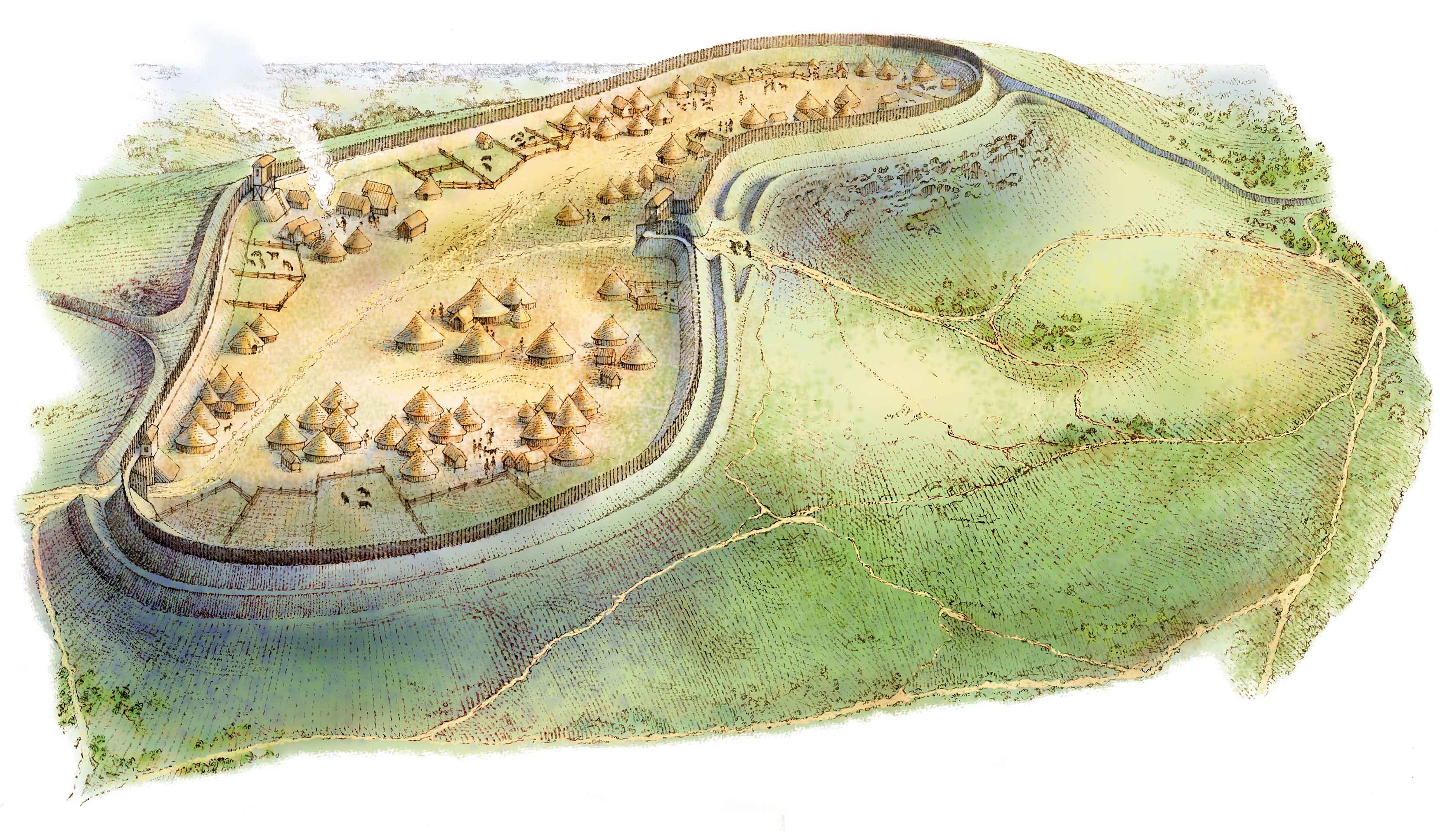Time Team and university archaeologists make fascinating discovery at Shropshire hillfort
A remarkable discovery has been made at one of Shropshire’s well-known Iron Age hillforts by archaeologists from Time Team and the Universities of Chester and York.
.jpg)
Thanks to funding from the Our Uplands Common project, light detection and ranging data (LIDAR) sensors, mounted on aircraft, have produced hi-resolution laser-scan data, which shows that Bodbury Ring Hillfort, on the north side of the Carding Mill Valley near Church Stretton, was six times larger than was originally thought.
The investigations, led by Time Team’s landscape archaeologist, and University of Chester Visiting Professor, Stewart Ainsworth, were part of a collaboration with the Universities of Chester and York, and Stepping Stones - a National Trust-led conservation project in the Shropshire Hills which aims to reconnect isolated patches of wildlife habitat by restoring a network of hedgerows, verges, woodland and wetlands.
Analysis of the data shows that the earthworks of Bodbury Ring are only a small part of a much larger hillfort which once enclosed the entire ridgetop of Bodbury Hill. This larger hillfort shares some characteristics with examples known to have originated in the Late Bronze Age.
Janine Young, National Trust Archaeologist said: “The new remote-sensing information provides a powerful portal for digital exploration of the Long Mynd. Using just a small sample area for research we have broken new ground in the understanding of the Iron Age in this region - without disturbing a single turf in the ground.”
.jpg)
Professor Ainsworth said: “The earthworks of Bodbury Ring, it seems, were constructed to form a small, more easily defended fort at the southern tip of the original hillfort, possibly in the Middle Iron Age. This prehistoric ‘downsizing’ may have resulted from increased tension in the region, reflecting possible changes in the geopolitical landscape of the times. Close by, on the northern side of Bodbury Hill, the remains of a probable Roman Iron Age enclosed settlement have also been identified for the first time.”

Professor Ainsworth is well known as the landscape archaeologist with Time Team, which first aired on Channel Four, is Visiting Professor of Landscape Archaeology in the History and Archaeology team at the University of Chester and is a Fellow of the Society of Antiquaries.
As part of this year’s Festival of Archaeology (July 13 to 28), Professor Ainsworth will talk about Bodbury Ring and the fascinating discoveries made there, at the Chalet Pavilion, Carding Mill Valley, on July 24 from 7.30pm. Tickets are £5 per person and bookable on the National Trust website.
.jpg)
From guided walks to family activities, there are lots of ways to dig deeper and celebrate the Festival of Archaeology at Carding Mill Valley this summer. For more details about what’s on, visit the National Trust website.
* Images courtesy of the Environment Agency, Patrick Edwards, Professor Stewart Ainsworth and the National Trust.
